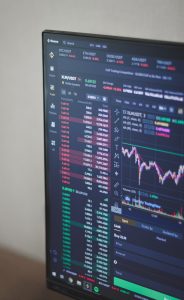The Differences Between Demo Trading Accounts and Live Forex Accounts
When it comes to forex trading, whether you are a beginner or an experienced trader, it is crucial to have a clear understanding of the differences between demo trading accounts and live forex accounts. While both types of accounts serve their own purpose, they have distinct characteristics that can influence your trading experience and outcomes. In this article, we will delve into the essential differences between demo trading accounts and live forex accounts and how they can impact your trading journey.
Demo Trading Accounts: A Training Ground for Beginners
A demo trading account is essentially a practice account that allows traders to familiarize themselves with the forex market without risking real money. It is a valuable tool, especially for beginners, as it provides an opportunity to learn the basics of trading, test various strategies, and gain confidence in executing trades.
One of the primary advantages of a demo account is that it replicates real market conditions, providing accurate price quotes and real-time market data. This enables traders to analyze the market and execute trades as if they were trading with real money. However, there are a few crucial differences that traders should be aware of when transitioning from a demo account to a live forex account.
1. Emotion and Psychological Factors: One of the significant differences between demo trading and live trading is the absence of real emotions in demo accounts. Since traders are not risking real money, they often trade without the fear of losing, which can lead to unrealistic expectations and overconfidence. In live trading, the emotional aspect comes into play, and traders need to learn how to manage their emotions, such as fear and greed, which can significantly impact their decision-making process.
2. Execution and Slippage: In a demo account, trade execution is usually flawless and instantaneous. However, in live trading, market conditions can vary, resulting in slippage, where the execution price may differ from the expected price. Slippage can occur during volatile market conditions or when trading large positions. Traders need to be prepared for potential slippage and incorporate it into their trading strategies.
3. Risk Management: Risk management is a crucial aspect of forex trading. While demo accounts provide traders with an opportunity to practice risk management techniques, the absence of real money at stake can lead to a lack of seriousness in implementing proper risk management strategies. When transitioning to a live forex account, traders must understand the importance of risk management and its impact on their trading capital.
Live Forex Accounts: Real Money, Real Emotions, Real Profits (or Losses)
A live forex account is where traders trade with real money, exposing themselves to the potential rewards and risks of the forex market. It requires a higher level of discipline, decision-making skills, and risk management compared to demo trading.
1. Emotional Realism: As mentioned earlier, live trading involves real emotions, which can significantly influence a trader’s decision-making process. Fear and greed are common emotions that traders face, and they can lead to impulsive trading decisions. Successful traders understand the importance of controlling emotions and developing a disciplined approach to trading.
2. Risk of Loss: Unlike demo accounts, live forex trading involves the risk of losing real money. Traders must be prepared for the possibility of losses and have a well-defined risk management strategy in place. This includes setting stop-loss orders and adhering to predetermined risk-reward ratios.
3. Market Liquidity and Execution: Live forex accounts trade in the real market, which means that market liquidity and execution speed can vary. During high volatility or news events, the market may experience slippage, resulting in trades being executed at a different price than expected. Traders need to be aware of these market dynamics and adjust their trading strategies accordingly.
4. Psychological Pressure: Trading with real money can create psychological pressure on traders, especially when facing consecutive losses or large drawdowns. It is essential to have a strong mindset and the ability to handle stress and pressure effectively. Developing resilience and maintaining discipline during challenging times is crucial for long-term success in live forex trading.
In conclusion, demo trading accounts and live forex accounts serve different purposes in a trader’s journey. Demo accounts provide valuable training ground for beginners to learn the basics of trading without risking real money. On the other hand, live accounts involve real emotions, real money, and real market conditions, which require a higher level of discipline and risk management. Understanding the differences between the two and transitioning from a demo account to a live account with proper preparation and mindset can significantly enhance a trader’s chances of success in the forex market.





